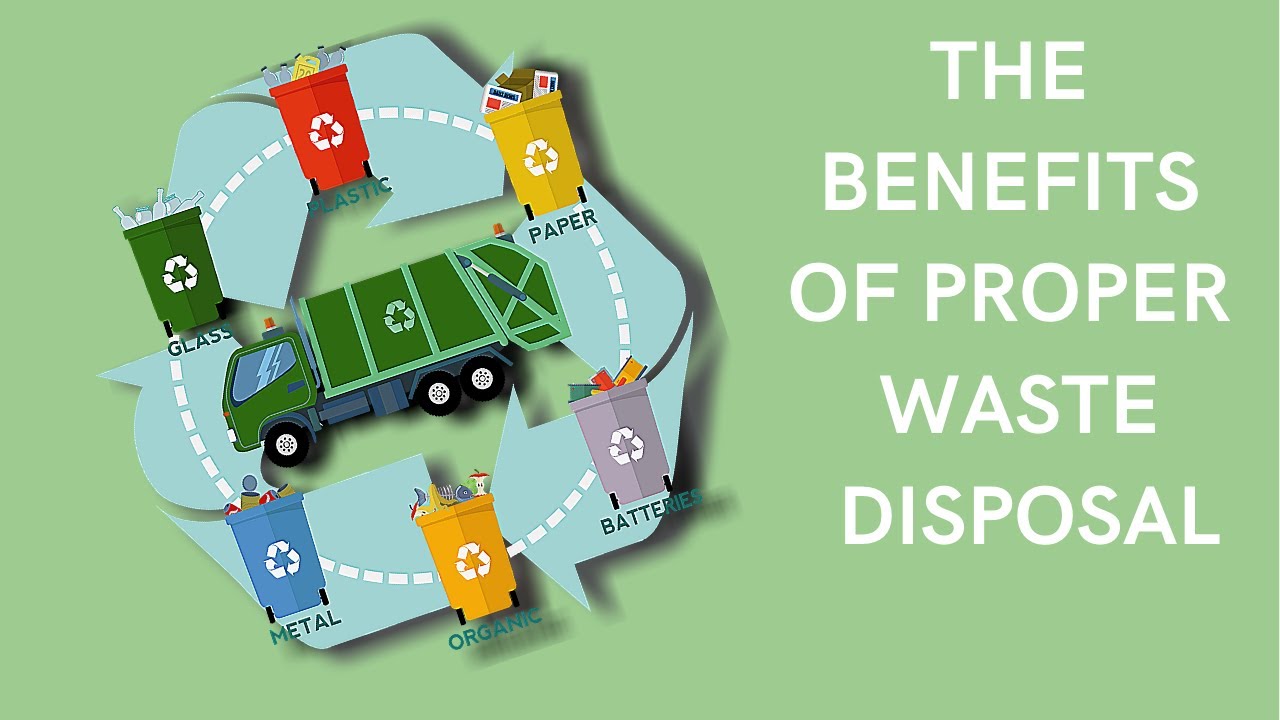Benefits of Waste Management
At [Your Company Name], we understand the importance of waste management and its significant impact on the environment, public health, and sustainable development. In this article, we will explore the numerous benefits of effective waste management practices, highlighting how they can contribute to a cleaner, healthier, and more sustainable future for all.
Reducing Environmental Pollution
One of the key benefits of waste management is its ability to reduce environmental pollution. Improperly managed waste can contaminate soil, water bodies, and the air we breathe, leading to severe environmental degradation. By implementing efficient waste management systems, we can minimize the release of harmful pollutants into the environment, thus safeguarding ecosystems and preserving biodiversity.
Preventing Health Hazards
Effective waste management plays a crucial role in preventing health hazards. Improper disposal of waste can attract disease-carrying pests, such as rodents and insects, which can spread harmful pathogens to humans. Additionally, the decomposition of organic waste releases hazardous gases, contributing to respiratory issues and other health problems. By adopting proper waste management strategies, we can protect public health and create safer living environments.
Conserving Natural Resources
Waste management also plays a significant role in conserving natural resources. Many items that are commonly discarded as waste can be recycled or reused. By implementing recycling programs and encouraging responsible consumption, we can reduce the need for raw materials extraction, conserve energy, and minimize the pressure on natural resources. This not only helps in preserving our environment but also promotes a more sustainable and circular economy.
Energy Generation through Waste-to-Energy
Another notable benefit of waste management is the potential for energy generation through waste-to-energy technologies. Organic waste, such as food scraps and agricultural residues, can be converted into biogas or biofuels through anaerobic digestion or other processes. These renewable energy sources can then be used to generate electricity, heat, or even fuel vehicles. By harnessing the energy potential of waste, we can reduce our reliance on fossil fuels and contribute to a greener, more sustainable energy mix.
Creating Employment Opportunities
Implementing effective waste management practices can also lead to the creation of employment opportunities. The waste management sector requires a diverse range of skills, from collection and sorting to recycling and waste treatment. By investing in waste management infrastructure and promoting sustainable practices, we can generate jobs and contribute to local economic development.

In conclusion, the benefits of waste management are far-reaching and encompass environmental, health, and economic aspects. By prioritizing effective waste management practices, we can reduce pollution, prevent health hazards, conserve natural resources, generate renewable energy, and create employment opportunities. It is our collective responsibility to adopt responsible waste management practices and work towards a cleaner, healthier, and more sustainable future.
Frequently Asked Questions
1. What is waste management?
Waste management refers to the collection, transportation, processing, and disposal of various types of waste materials.
2. Why is waste management important?
Effective waste management helps protect the environment, conserve resources, prevent pollution, and promote public health and safety.
3. What are the benefits of recycling?
Recycling reduces the need for raw materials, saves energy, decreases landfill space, and helps combat climate change by reducing greenhouse gas emissions.
4. How does waste management contribute to a cleaner environment?
Proper waste management practices prevent the release of harmful substances into the air, water, and soil, reducing pollution and preserving ecosystems.
5. How does waste management conserve resources?
By recycling and reusing materials, waste management minimizes the extraction and consumption of natural resources, such as minerals, timber, and water.
6. What are the economic benefits of waste management?
Efficient waste management systems create jobs, promote sustainable industries, and generate revenue through the sale of recycled materials.
7. How does waste management impact public health?
Proper waste disposal prevents the spread of diseases, reduces exposure to hazardous substances, and maintains a clean and hygienic living environment.
8. Can waste management help reduce greenhouse gas emissions?
Yes, waste management practices like composting organic waste and using landfill gas for energy production can significantly reduce greenhouse gas emissions.
9. How does waste management promote sustainability?
By minimizing waste generation, maximizing recycling efforts, and adopting eco-friendly waste treatment methods, waste management contributes to a more sustainable future.
10. What role can individuals play in waste management?
Individuals can practice waste reduction, separate recyclables, dispose of hazardous waste properly, and support local recycling programs to contribute to effective waste management.




